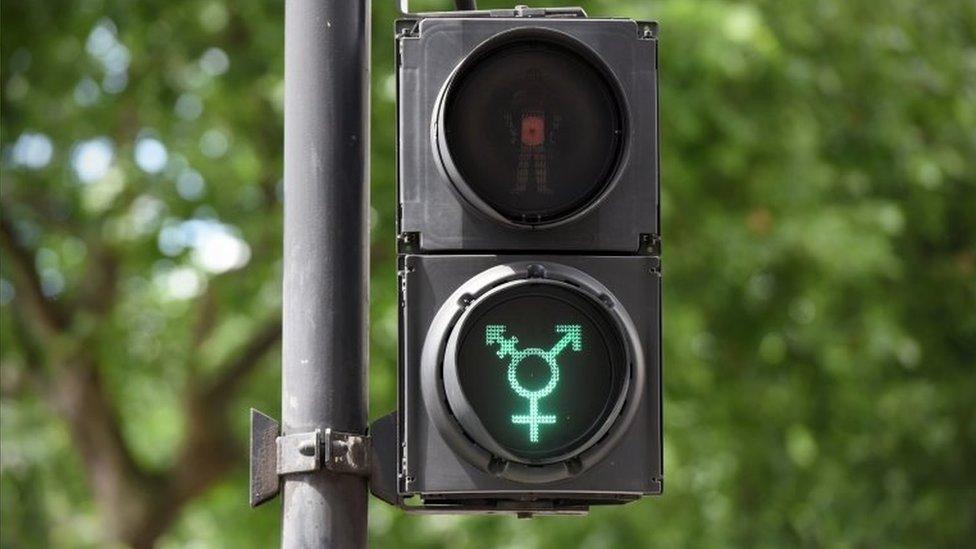Trans Day of Remembrance: 'When one of us is hurt, we all feel it'
- Published
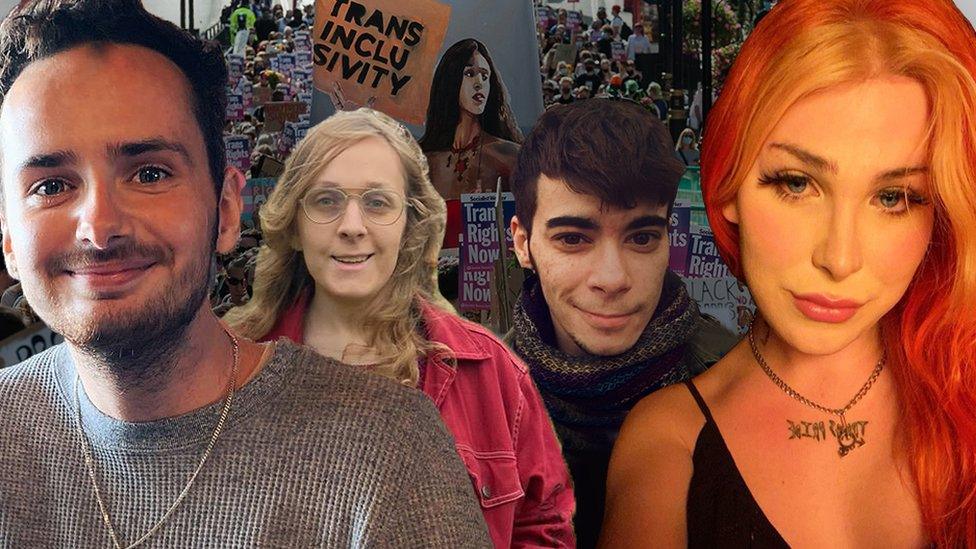
Among the banners carried by thousands of trans people and their supporters at London Trans Pride in 2020, it was hard to miss the image of Elie Che.
The photo of a black transgender woman in a red dress, holding a sign that reads 'trans inclusivity', had been shared widely on social media in the weeks leading up to the event, and it was carried through central London during the September march.
Elie, 23, a British model, poet and performer had been found dead on a beach in New York on the last day of August last year.
"I know we say this about everyone who passes away, but Elie really was one of the kindest people you'd ever meet," Lucia Blayke, the 24-year-old organiser of London Trans Pride, and friend of Elie, tells Radio 1 Newsbeat.
"Elie wanted to be a beacon of hope and of light to the younger generation, because she was very aware of her struggle and very aware of how tough it was being a black trans woman.
"She really didn't want the next generation to have to go through the same struggles that she did."
Allow Instagram content?
This article contains content provided by Instagram. We ask for your permission before anything is loaded, as they may be using cookies and other technologies. You may want to read Meta’s Instagram cookie policy, external and privacy policy, external before accepting. To view this content choose ‘accept and continue’.

Elie's death was ruled as accidental drowning, external, and she's among the people who will be remembered today, the international Trans Day of Remembrance.
It comes at the end of Trans Visibility Week, which aims to raise awareness of the issues faced by the transgender community.
Before her death, Elie had been crowdfunding to support her move to New York and her medical transition, and had told supporters of her GoFundMe that her goal was to live past 35.
"It was a big loss to the whole London queer community when Elie passed away," adds Lucia, tearfully.
"So it was really important to have a painting of her holding the sign because it was almost like she was still there, marching with us all."
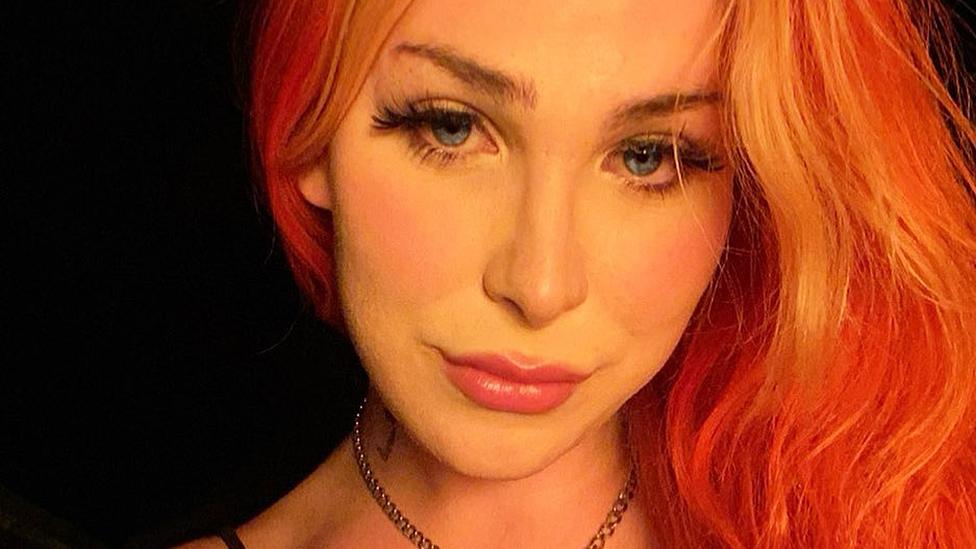
"I think mostly about black trans women on the day of remembrance," says Lucia
By November this year, 375 transgender people - mostly trans women of colour - had been murdered worldwide., external That's up from 350 at the same time, external in 2020.
These numbers are the highest since trans murders started being recorded in 2013.
'A dramatic increase in violence'
Kate Sosin, a US trans reporter for gender, politics and policy publication The 19th, tells Newsbeat these figures are "unlike anything we've seen".
They say the media has got better at reporting trans murders, but Kate doesn't believe that's why this year's numbers are so high.
"We've had this infrastructure in place for years of organisations that know how to find news reports about trans people, we've had an awareness of trans homicides," they say.
"So at this point, we don't expect to see such a dramatic increase in numbers due to reporting, this does look like a dramatic increase in actual violence."
Transphobic hate crime: 'You don't feel protected'
Adding to the grief of loved ones, the murders are often reported in graphic detail, videos shared on social media and victims can be misgendered by police, family or local press., external
Studies have shown suicide is also more of a problem among young trans people, external than the rest of the population - Lucia says she had suicidal thoughts before she came out.
And while 375 murder victims might sound like a small number, in a group that's already a very small minority - far fewer than 1% of people identify as transgender - the deaths have an impact on trans people across the world.
"The trans community does stand together, so when one part is hurt somewhere, it feels like we are impacted everywhere," 20-year-old Amelia Jones, who's at university in Sussex, tells Newsbeat.
She's transgender and says Trans Day of Remembrance to her is about "striving for acceptance".
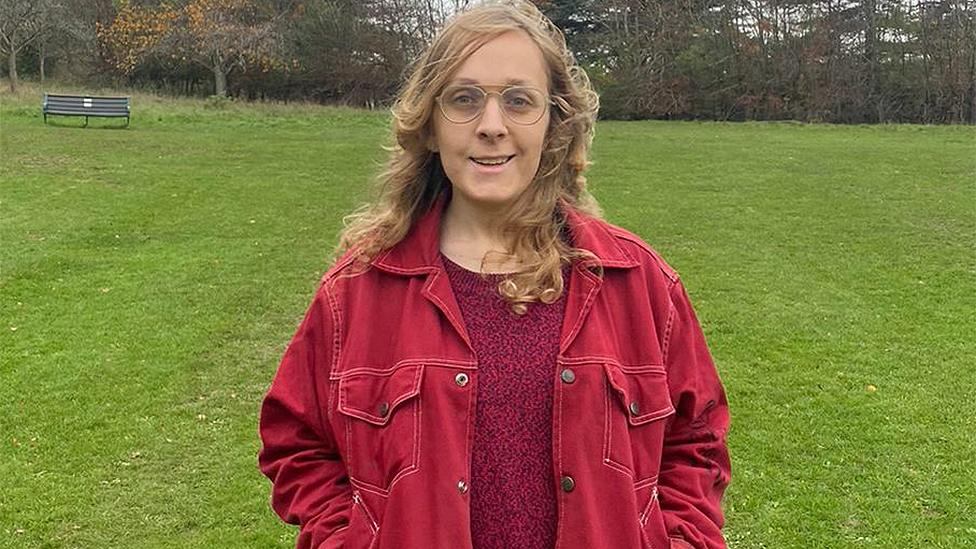
"We take the hits together, but we can also take the highs together," says Amelia
"Hopefully it will make people realise that we aren't just some scary people to be debated in the newspapers," she says.
"We're real people and this hate has caused people to lose their lives."
In September 2020, the UK government ruled against making changes to transgender laws after a long public consultation - but conversation and challenges around these issues continue.
There have been no trans murders recorded in the UK in 2020 or 2021 - but that's not to say transphobia isn't a problem.
In September this year, a transgender woman was stabbed in the stomach on her doorstep in Birmingham.
"I've experienced homophobic and transphobic violence myself in this country," says 24-year-old trans man Harry Nicholas.
"Although it may not be to the extent that we see trans murder happening in places like US and Mexico, it's definitely felt by trans people in the UK."
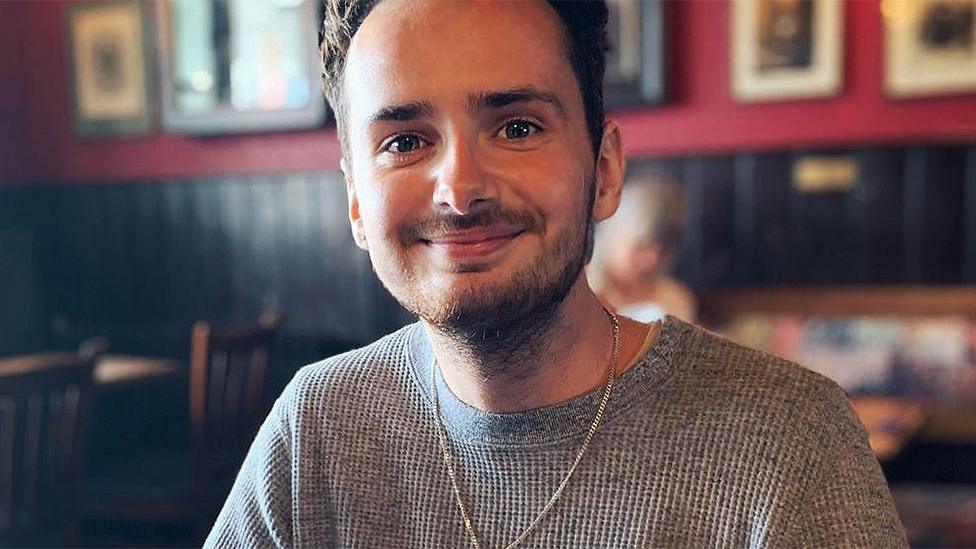
Harry says it's "really difficult to hear" about trans murders in the media
For Harry, living with a sense of loss is a key factor in being part of the LGBTQ+ community.
"As queer people as well, we have a sense of connection to community mourning, whether that's the AIDS epidemic, or the Soho nail-bombs," he says.
"Each year, on Trans Day of Remembrance, there's a sense of mourning family, and potentially the fact it could be you because of the violence that you fear yourself."
For 28-year-old trans man Toby Sinbad Walker, it's a day when trans people are given time to pay their respects.
"It's an opportunity for the rest of the country to pay attention to what's happening in trans communities and the problems we have," he says.
"The day of remembrance isn't going to come under attack in the same way that calls for trans rights are."
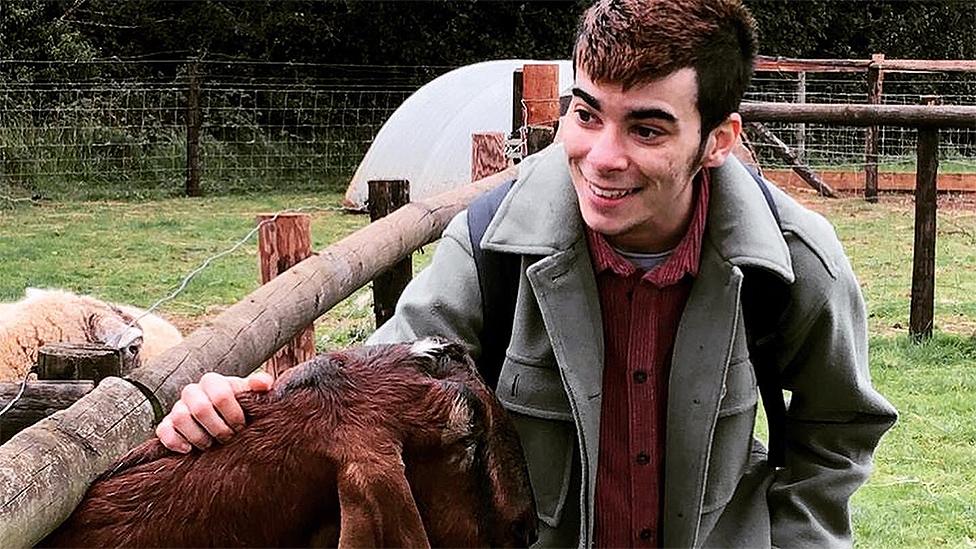
Toby says he's faced transphobic abuse, even during lockdown
Toby lives in Lincoln and says he has been verbally abused in the street and assaulted in male toilets for being transgender.
But there was a moment of hope for trans people on the worldwide stage.
When President elect Joe Biden gave his victory speech following the 2020 US presidential election, he named transgender people among those he thanked for his win.
Biden and Harris call for unity in victory speeches
But Kate, who's American, says they want to see more than just a "gesture" from the president.
"The last four years have been so devastating to some people and mentioning trans people is just not is not going to mean very much without substantial policy change.
"I'm just not that interested in symbolic gestures at this point."
Lucia and Toby agree with Kate, but for Amelia and Harry, it brought some positivity to the end of a long year.
Amelia describes that speech as "amazing" and says it filled her with hope for the future. Harry says it "meant the world to him".
"Nothing's happened yet but I think we can be pretty confident that it will," he says.
"So that hope, in a year where there hasn't been much, it's really quite a beacon of light."


Follow Newsbeat on Instagram, external, Facebook, external, Twitter, external and YouTube, external.
Listen to Newsbeat live at 12:45 and 17:45 weekdays - or listen back here.
Related topics
- Published16 May 2024
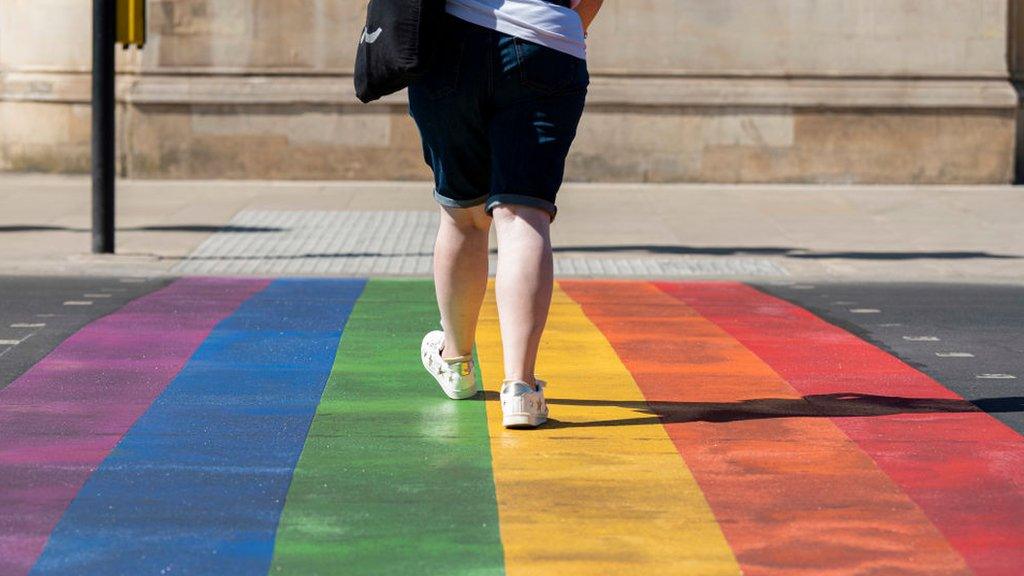
- Published28 September 2021
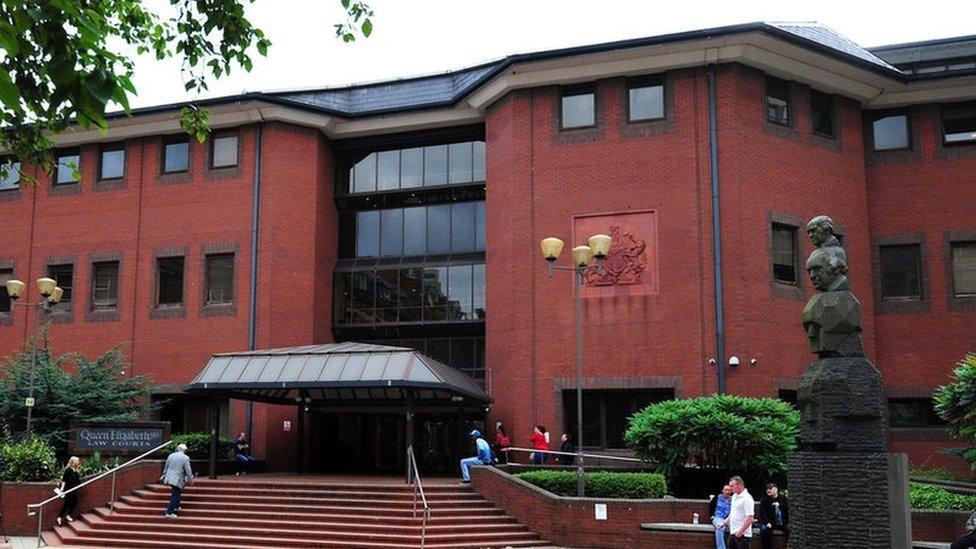
- Published11 October 2020
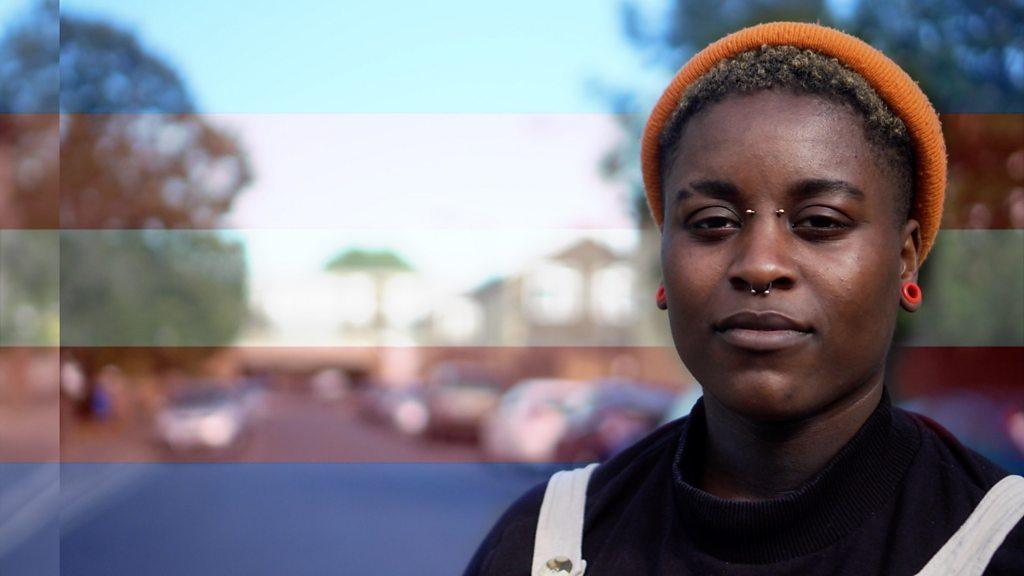
- Published22 September 2020
